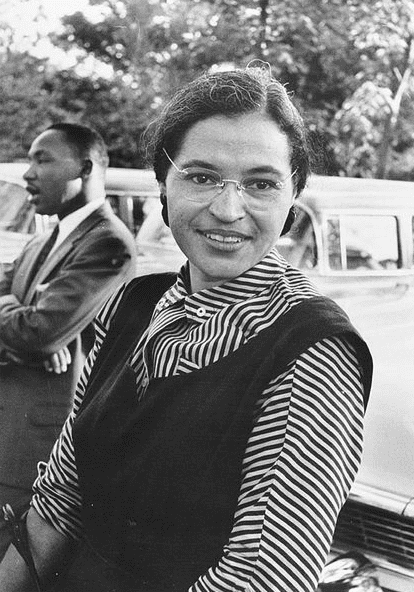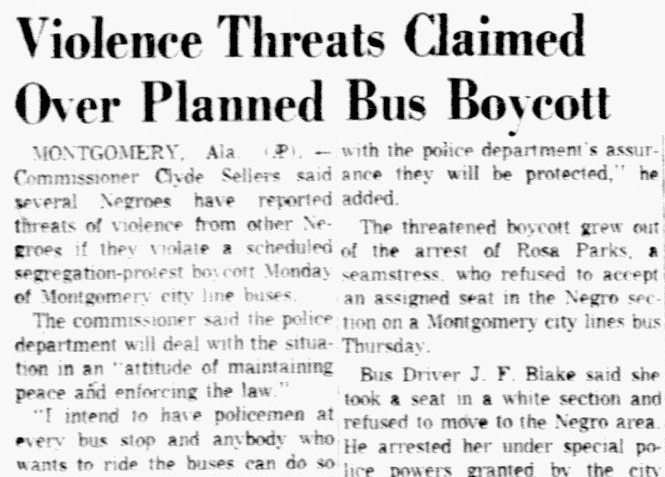When Rosa Parks, an African American woman in Montgomery, Alabama, refused to give up her bus seat to a white person on 1 December 1955, her act of resistance ignited the Montgomery Bus Boycott – which in turn accelerated the Civil Rights Movement and forever changed America.

It was not that Parks was too physically tired to move that evening, though it was the end of another long day working as a seamstress in the Montgomery Fair department store. Nor was she old and infirm; at 42, she was a strong and healthy woman. She had simply had enough of the city’s segregation laws that gave whites more rights than blacks.
Her arrest for refusing white bus driver James Blake’s order to give up her seat galvanized the African American community in Montgomery. Thousands of leaflets were distributed calling for a boycott of the city’s buses until the segregation laws were changed. The boycott was led by a young minister, Martin Luther King, Jr., who soon rose to national prominence as a civil rights leader.
After 381 days the segregation laws were finally changed and blacks once again rode Montgomery’s buses – but that victory was only the start of something much, much bigger.
Here is an article printed by the Dallas Morning News the day the Montgomery Bus Boycott began.

Here is a transcription of this article:
Violence Threats Claimed over Planned Bus Boycott
MONTGOMERY, Ala. (AP) – Commissioner Clyde Sellers said several Negroes have reported threats of violence from other Negroes if they violate a scheduled segregation-protest boycott Monday of Montgomery city line buses.
The commissioner said the police department will deal with the situation in an “attitude of maintaining peace and enforcing the law.”
“I intend to have policemen at every bus stop and anybody who wants to ride the buses can do so with the police department’s assurance they will be protected,” he added.
The threatened boycott grew out of the arrest of Rosa Parks, a seamstress, who refused to accept an assigned seat in the Negro section on a Montgomery city lines bus Thursday.
Bus Driver J. F. Blake said she took a seat in a white section and refused to move to the Negro area. He arrested her under special police powers granted by the city code.
Thousands of circulars were distributed Saturday urging Negroes not to ride the buses Monday in protest of the arrest.
Rosa Parks will be given a hearing in recorders’ court Monday on a charge of violating city segregation laws. Her attorney, Fred Gray, a Negro, said he intends to enter a plea of innocent.
Meanwhile, a mass meeting of Negroes has been called Monday night for what the circulars described as “further instructions” in the “economic reprisal” campaign against the city bus lines.
Related Articles:
